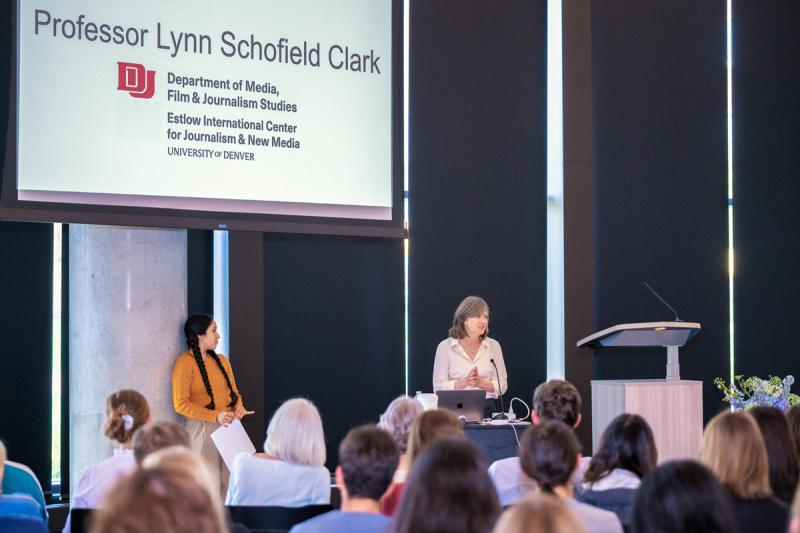Faculty Spotlight: Lynn Schofield Clark

Written by Katie Yeager
Dr. Lynn Schofield Clark is a co-principal investigator on a new grant titled Youth Voices in El Movimento that The University of Denver received through The National Endowment for the Humanities (NEH). NEH grants support curriculum development, intending to “support research, education, preservation, and public programs in the humanities,” according to their website.
Clark currently serves as the Director of the Estlow International Center for Journalism and New Media as well as a Professor in Media, Film, and Journalism Studies. She primarily teaches courses on TikTok, media ethics, critical race theory, innovations in media and artificial intelligence, storytelling, and reporting. This is the second grant that Clark has received through the NEH during her time at DU in addition to a number of grants received through other organizations.
Clark says that the grants will provide the space to “connect faculty research interests in Latine history and culture with the demand for courses that help students to better understand the local area and its histories.”
The curriculum initiative will introduce 12 new or revised courses over a period of two years, bringing a spotlight to the benefits of community engagement and place-based learning. The hope of this initiative is to bring a greater understanding of how young people in the area have built ideas for social justice work that can be built upon in the present and future. Clark believes that this curriculum development initiative will expand education and experience for students to apply storytelling techniques in media.
“Research is demonstrating that involving young people in creating stories for public consumption, whether through podcasts or on sites like Instagram, can help to strengthen the civic imagination. Also, hearing the stories of Spanish language and Latine communities are important to the making of a robust and inclusive democratic society,” said Clark.
The team working alongside Clark includes Professors Tom Romero, Lisa Martinez, Marinka Swift, Carlos Jimenez, Lina Reznicek-Parrado, Esteban Gomez, Hava Gordon, Angela Parker, Elizabeth Escobedo, and Runchao Liu.
“I’m especially enthusiastic about the research project that will help us to evaluate the impact that participation in this experiential learning project will have on the students who are involved,” said Clark. “This will build on research that Carlos Jimenez and I have done on the development of political and civic engagement among young people who learn through critical race pedagogies, and on research that Professors Lisa Martinez and Maria Salazaar have conducted on the development of oppositional consciousness among Latine youth.”
Recently, the team launched the project's website, Documenting the Past, Fostering the Future. Throughout the spring quarter, the team has been working to bring in Community Fellows who will work alongside them in the project to ensure that the research and curriculum of the initiative are meeting the needs and expectations of Latine communities.


